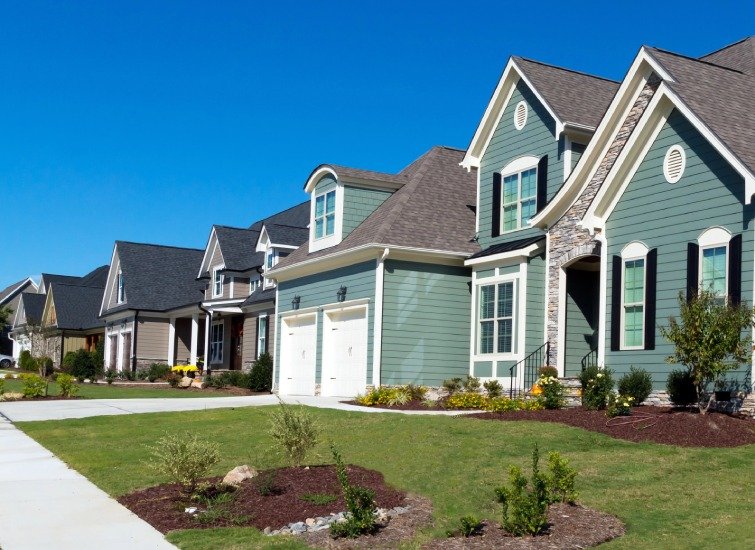Despite the desperate need for new housing, many developers have been forced to put projects on hold because crippling taxes, fees and levies have made housing unaffordable to many Canadians.
In the Greater Toronto and Hamilton Area alone, developers have shelved 60 previously planned condo projects since late 2022, according to a report from real estate consultancy Urbanation.
This drop will only exacerbate the already-dire housing situation. It will also have a negative effect on the economy. Employment in the country’s construction sector fell by more than 11,000 positions in April.
The trend is expected to continue with the rate of homebuilding slowing. For every 1,000 condo units that are built, some 1,600 jobs are created, according to a report by a number of homebuilding organizations. Construction of 1,000 single-detached homes creates 4,600 jobs.
It is time to give new home buyers a break, especially those who are purchasing their first home, by cutting the HST on new market housing, much like what was done for purpose-built rental housing. This will give builders a chance to supply housing that is not taxed beyond reach.
Situation could get worse
The storm clouds have been gathering for some time and Canada desperately needs to find a way to lower prices of new homes. Unfortunately, the situation could get worse before it gets better.
We have the second highest ratio of house prices to income among all Organization for Economic Cooperation and Development countries. A survey conducted by Rob Carrick, personal finance columnist at The Globe & Mail, found that 44 per cent of young Canadians have given up on home ownership or feel it likely won’t happen. Only 19 per cent said they’re convinced they’ll own a home at some point. For a country like ours, those figures are disconcerting.
A typical young person in Ontario will have to work for 22 years to save a downpayment on an average home. Less than 30 per cent have sufficient income to buy a single-family home.
The exorbitant taxes, fees, levies and development charges on new housing are a major reason for the lack of shovels going in the ground. Red tape and bureaucracy and an inefficient development approvals process are other reasons, as are the lack of infrastructure to support new housing. Clearly, all these issues must be addressed to solve the problem.
However, housing is vastly overtaxed. Presently, 31 per cent of the cost of a new home goes to taxes, fees and levies. Those buying a home today are paying for infrastructure that benefits the entire community. It is not fair to saddle new homeowners with this type of burden. The cost of new infrastructure needs to be shared more equitably amongst the population.
Development charges hiked
For example, development charges on new housing in the Greater Toronto Area (GTA) have risen dramatically – and the hikes are getting worse. They are only one of the fees levied on new homes.
On May 1, the charges were hiked by 21 per cent. On June 6, they were hiked again to reflect provincial changes to the Development Charge Act. So, in less than a year, the rates are up 42 per cent. Matt Young, president and CEO of Republic Development, has highlighted that development charges for a one-bedroom condo have risen to $52,676 in June from $37,081 in August 2023.
Remember, these costs are paid by homebuyers. The result? New homes are more expensive – at exactly the time we need to reduce the cost and build more homes.
There is also an argument to be made that these fees raise the price of all housing. As the market rises, the value of older homes go up as well, even though there are no charges built into the price.
Bold action is needed
The situation has worsened significantly in the last five years as taxes, fees, levies and development charges have risen dramatically. It will take consistent, bold and concerted action by all levels of government to correct the situation and lower the cost of building new housing.
The move to exempt all forms of purpose-built rental from the HST/GST was a good start. That must now be applied to market housing as well.
The present situation is unfair to consumers – especially those buying their first home. The federal government’s share of housing taxes is 40 per cent, yet it invests only 7.1 per cent of that into public infrastructure. In effect, taxes on new housing are being used to top up the federal coffers.
Halfway around the world, Australia is dealing with a situation that is similar in many ways to ours. The big difference, however, is that the country is taking novel action to tackle the problem.
In the Six Cities Region in New South Wales, they are looking at imposing a moratorium on new taxes and development charges and reducing project approval timeframes to six months. The moves are expected to result in an additional 64,000 homes being built between 2025 and 2029.
Here in Canada, the clock is ticking. It is time to reset the narrative.
Richard Lyall is president of the Residential Construction Council of Ontario (RESCON). He has represented the building industry in Ontario since 1991. Contact him at media@rescon.com.

